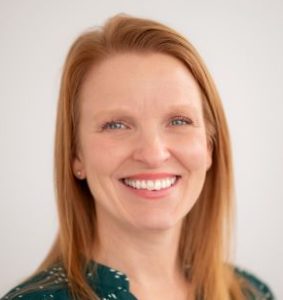
The world lost a scion earlier this month.
You might assume I’m talking about Queen Elizabeth, but I’ve personally been more affected by the Sept. 1 death of non-fiction author Barbara Ehrenreich, a dogged researcher and sharp social critic who shed needed light on some of our nation’s darkest social issues.
She was a champion of the working class, for a time living paycheck-to-paycheck within it, and later, a fierce advocate for seniors and the idea of aging with dignity.
You might be familiar with “Nickel and Dimed,” Ehrenreich’s seminal work in which she went undercover to work as a maid, a Walmart associate and a nursing home aide — all jobs paying a minimum wage that has not risen significantly since in most parts of the country.
The New York Times, in its obituary of Ehrenreich, called her account of that experiment “a classic in social justice literature.” For me, a college-educated child of a modestly middle-income family, the 2001 book was an eye-opening glimpse into what life is truly like for many of the Americans who keep our stores and healthcare facilities open and our lives turning.
It was also an enthralling read that showed the power of simple, straight-forward writing when wielded by someone who had witnessed injustice and felt called to change it. Embedded in her tales were details of her co-workers’ struggles, the stress that comes with constantly living on the edge of a catastrophe that you can’t afford.
Of poverty she wrote, “It’s not a place you would want to visit for touristic purposes; it just smells too much like fear.”
Among the part-time jobs that Ehrenreich took on was that of dietary aide at a nursing home in Maine. Unlike many seeking shifts in skilled nursing, she was a native English speaker with college degrees and a car to get to her jobs whenever she was scheduled. That was a reason she went to Maine for work; in other parts of the nation, her pursuit of physically demanding, entry level jobs was an aberration.
As I picked up “Nickel and Dimed” again last weekend, I couldn’t believe the prescience Ehrenreich showed in choosing Maine. Although it’s one of the oldest states in the nation based on population, the high cost of living is today driving many would-be healthcare workers out of their jobs.
Even in the late 1990s, Ehnrenrich had to work two jobs there (the second at a greasy spoon). At a nursing home she called the “Woodcrest Residential Facility,” she sometimes spent entire shifts on a locked dementia unit alone, delivering food, helping feed residents and then spending hours cleaning up.
It was a job for which she, and by extension many others, felt woefully unprepared and highly over-responsible. Like many entering long-term care, she had little experience with caring for seniors beyond her own father.
“What is this business of letting someone in off the street to run a nursing home, or at least a vital chunk of a nursing home, for a day?” asked Ehrenrich, who noted that the facility did at least check her references. But she also pointed out hiring desperation that existed more than 20 years ago, referencing a 2000 federal report that showed most nursing homes were “dangerously understaffed.”
It’s unclear what specific report she was referencing, but the timing puts it just ahead of the first recommendation of a 4.1 hour per resident, per day staffing minimum.
Ehrenreich was 81 when she died, and still very much active as a writer and an observer of truths. Ehrenrich never stopped thinking of those whose lives she entered briefly. Her own life and her life’s work, she knew, was a blessing when viewed beside their seven-day a week, toil-til-you-die circumstances.
“Writing is ego food, totally self supervised and intermittently productive of praise,” she reflected following a shift she filled alone at Woodcrest after less than a month on the job. “Here, no one will notice my heroism on that Saturday’s shift. … If you hump away at menial jobs 360-plus days a year, does some kind of repetitive injury of the spirit set in?”
She also pushed for others to tell their own stories, creating the Economic Hardship Reporting Project, which the Times described as “helping the work of underrepresented people get published and providing economic assistance to factory workers, house cleaners, professional journalists and others who had fallen on hard times.”
I’ve moved Ehrenreich’s “Had I Known: Collected Essays” up on my to-be-read list. It’s a book I didn’t know existed until after I learned of her death, but there’s little doubt her reflections will deliver newfound insights and a healthy dose of empathy.
Kimberly Marselas is senior editor of McKnight’s Long-Term Care News.
Opinions expressed in McKnight’s Long-Term Care News are not necessarily those of McKnight’s.




